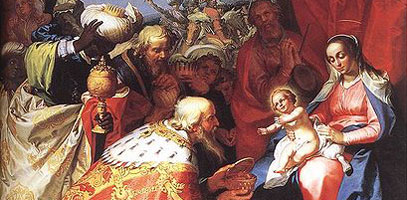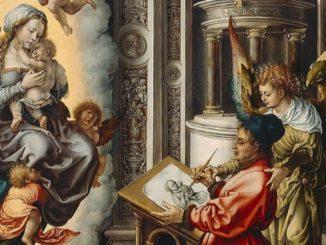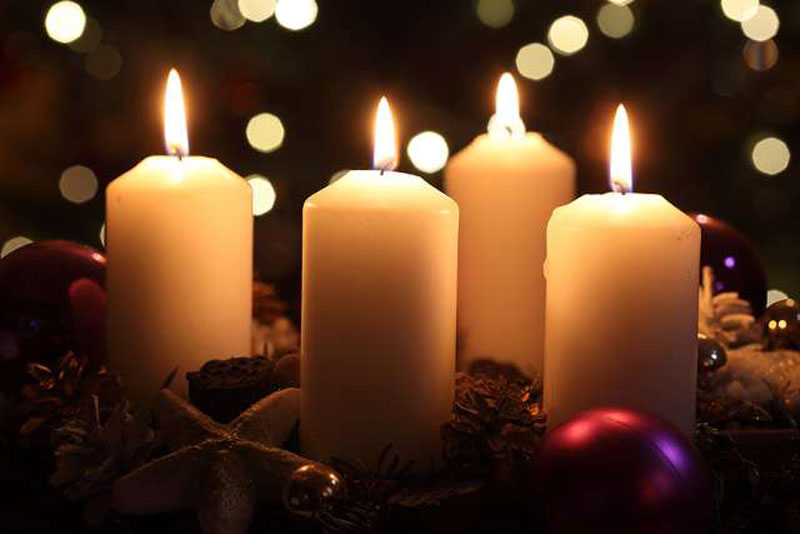
Most of us are familiar with the traditional song about the 12 days of Christmas — you know: “On the first day of Christmas, my true love gave to me…” But how many know when the first day of Christmas is?
Father Jay Scott Newman, pastor of St. Mary Church in Greenville, said if you only pay attention to secular society, one would think Christmas starts about the same time as Halloween.
Popular culture has led many to believe that the 12 days of Christmas lead up to Jesus’ birth and end on Christmas Day.
This is backward.
According to Christian tradition, the birth of Christ is the first day of Christmas and the following 12 days are spent in celebration of His coming into the world.
But things tend to get all topsy-turvy with parades and Christmas parties filling the Advent season.
“In the secular celebration there is no Advent,” Father Newman said. Advent covers the four Sundays leading up to the birth of Jesus and is supposed to be a time of preparation, when Christians are called to devote themselves even more fully to their faith.
Priests in the diocese acknowledge it’s hard to resist celebrating during Advent when it seems the rest of the world is doing so.
For some, Advent is still a time for penitence, for waiting in anticipation of the Christ Child, and not a time to celebrate.
Teresa Chmura, from St. Joseph Church in Columbia, said she moved from Poland in 1982 and was shocked by how early people decorated. Her family had followed the tradition of decorating the tree during the Christmas Eve vigil, when angels would bring presents to honor the newborn Jesus.
“The happiest time — when people were celebrating and visiting — was after Christmas,” she said.
Father Bryan P. Babick noted that Advent had a heavier, more penitential character before Vatican II, which lightened the Advent season to make it distinct from Easter by focusing on preparation over penance.
Both Fathers Babick and Newman said it is acceptable to celebrate during Advent as long as it’s for the right reason.
“How can you say to people, ‘We’re not going to have any Christmas parties until after Dec. 25?’” Father Babick wondered. “The real time of celebration would still be Christmas itself.”
When he was a child, his family decorated the tree on Christmas Eve. He said it’s OK to put the tree up early, but suggested leaving it green until the vigil on the 24th.
Christmas shows, parades, festivals of lights — it’s all OK. At the same time, families should keep the focus on the birth of Christ in their own home.
Set up the Nativity, but move the figures into position according to when they arrived. Bake a birthday cake for Jesus on Christmas with 33 candles.
“There’s no wrong answer in terms of celebrating, as long as it’s Christ centered,” Father Babick said.
That’s where parents come in.
“In my experience there’s no way for Catholics to insulate ourselves from the general culture,” Father Newman said. He cautions people to honor Advent in their own lives and make it distinct from Christmastide.
He encourages families to have an Advent wreath, say Advent prayers, and recite the Liturgy of the Hours.
Nettie Taylor, director of education at St. Joseph Church, said it’s important to not rush the season. Families who are celebrating the 12 days should keep their tree up until the final day, which is marked by the visit of the Magi on the Feast of the Epiphany.
Or, based on the liturgical calendar, Christmas runs a few days longer, ending with the feast of the Baptism of the Lord. Families can also extend their tribute to Christ until the Presentation of the Lord on Feb. 2.
“It can be hard to keep the focus. Do all you can in your own home to maintain the real reason,” Father Babick said. “It’s a blessed time of year.”



